They Ran for their Lives: Panic at DC March Inflames the Trauma of Parkland
For school shooting survivors, the fallout lasts a lifetime. A chaotic false alarm at the March For Our Lives rally in D.C. was a stark reminder
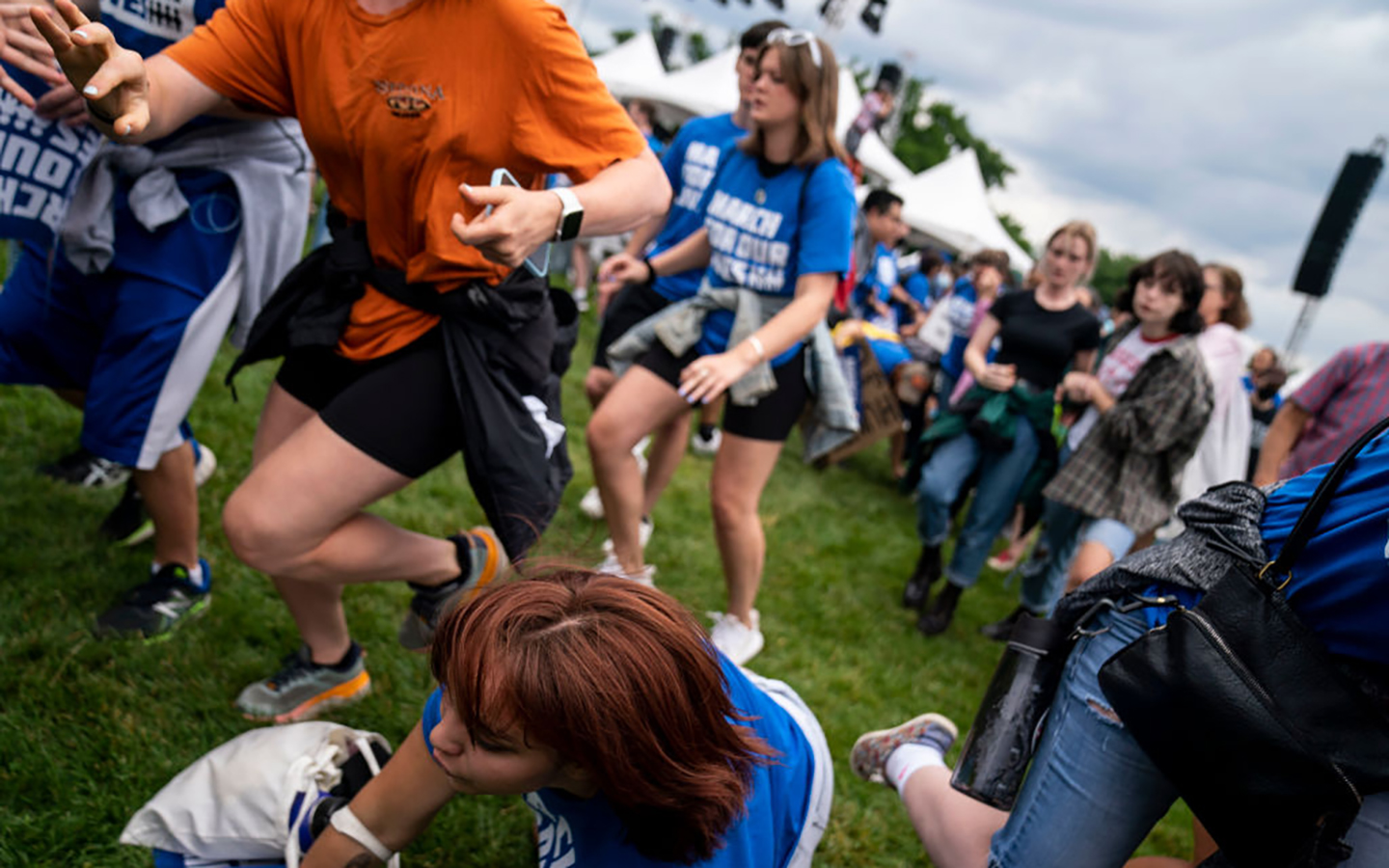
Washington, D.C.
It was during a solemn moment of silence that Stacey Wesch fell to the ground in fear for her life.
Just four years earlier, her daughter hid in a closet for more than two hours after a gunman killed 17 people at her high school in Parkland, Florida. Now, during a gun control rally on Saturday in Washington, D.C., a false alarm thrust Wesch into a panic attack. The lingering trauma of the Parkland shooting was put on display just steps from the White House in the form of raw terror as Wesch and hundreds of others believed they had come under gunfire.
“I saw security rushing and then everybody started running and I completely froze,” Wesch told The 74. “All I could think about was our kids, what they went through, and here we are, we’re going through this and how scared our kids must have been.”
The mayhem began when a man’s screams broke the silence as an estimated 40,000 paid respects to the 19 children and two teachers killed in a mass shooting at a Uvalde, Texas, elementary school last month. The D.C. suspect reportedly hopped a fence and rushed toward the stage before being restrained by security. As he yelled, some witnesses believed he said he was armed; other reports suggest he shouted “I am the gun” while throwing an object into the crowd.
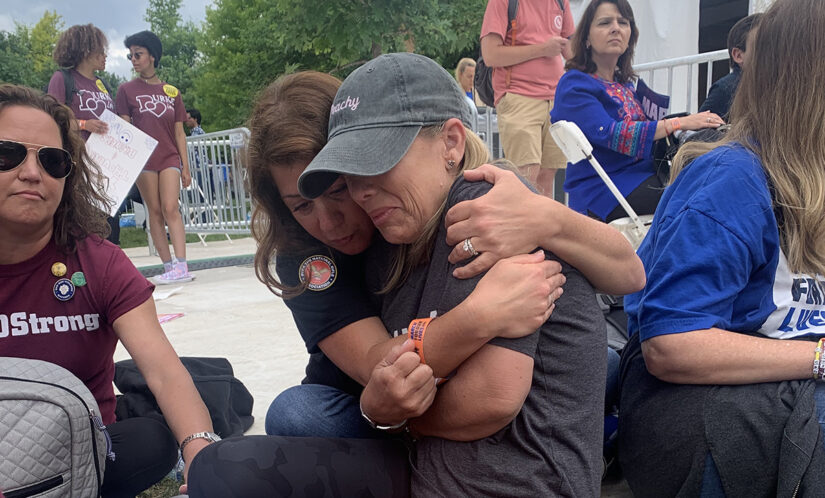
During the commotion, a loudspeaker tumbled to the ground and emitted a loud pop, causing many in the front of the audience to take cover on the ground as others ran from the stage. Erica Ford, the co-creator of the New York City Crisis Management System, observed the melee from the stage and jumped into action to stop rally goers from getting trampled in a stampede.
“Do not run!” she yelled into the microphone. “Please do not run. There is no issue here.”
Fred Guttenberg, whose daughter Jaime was killed at Parkland’s Marjory Stoneman Douglas High School, lauded Ford’s prompt reaction in a Twitter thread Sunday morning.
“Because of her quick thinking, the crowd stopped,” wrote Guttenberg, who briefly took the stage on Saturday to explain what had transpired moments earlier. “Had people kept on running, people would have been injured.”
A U.S. Park Police spokesperson identified the suspect as Mitchell Martinez, a 21-year-old from Coral Gables, Florida, who was charged with disorderly conduct for creating fear and disorderly conduct for disrupting a gathering. An investigation determined that Martinez was not armed, the spokesperson said, and he was released from custody.
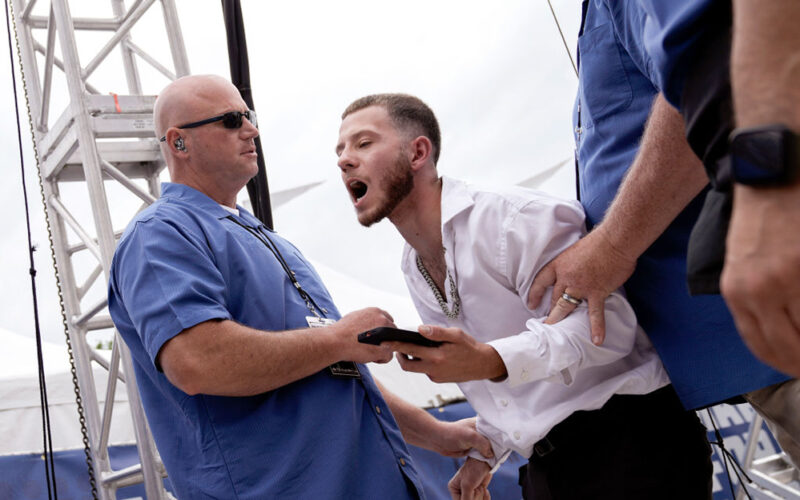
The incident lasted just a brief moment, but for thousands of Americans who have survived mass school shootings and their families, it was a terrible proof point that the psychological toll of those events lasts a lifetime. More than a quarter of those who witness a mass shooting develop post-traumatic stress disorder and a third develop acute stress disorder, according to National Center for PTSD estimates. Since the 1999 mass shooting at Columbine High School in suburban Denver, more than 311,000 students have been exposed to campus gun violence, according to The Washington Post.
“Our community is still suffering,” said Angela Weber, whose son survived the Parkland attack. “It took less than four minutes for our shooter to kill 17 educators and students, wound 17 others and create trauma in a community of thousands. The ripple effects of that tsunami of trauma continues to this day.”
Nearly a decade after the mass shooting at Sandy Hook Elementary school in Newtown, Connecticut, many in the community are still suffering. The recent shooting at Uvalde’s Robb Elementary School was particularly challenging because of its similarities to the 2012 Sandy Hook killings, said Po Murray, co-founder of the Newtown Action Alliance and a former neighbor of the Sandy Hook gunman.
“These children who were in school as second, third and fourth graders are now in high school and they are still dealing with trauma to this day,” Murray said. “In December, it’ll be 10 years and 1 million Americans have been shot. Is that the price of freedom?”
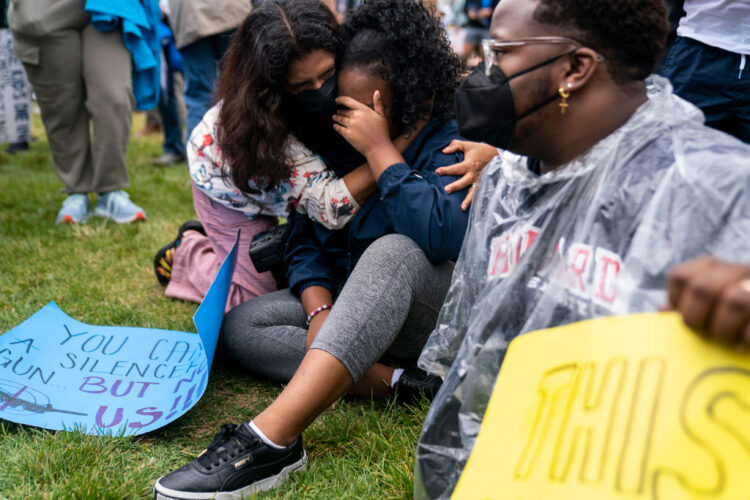
‘I was 100% terrified’
Though mass school shootings have long been a catalyst for gun reform advocacy, federal legislative changes have been elusive. Uvalde could be different. On Sunday, Senate negotiators announced a bipartisan deal on new gun control measures. Though far narrower than the demands of gun-control proponents, the legislation would create the most sweeping federal firearms rules in decades.
The plan, which was announced by 10 Republicans and 10 Democrats, would create enhanced background checks for prospective gun buyers under 21, provide federal funding to states that enact so-called “red flag” gun laws, and allocate money for school mental health services and enhanced security measures. Though the deal appears to have enough Republican support to pass, formal legislation is not yet public and a timeline for its approval remains unclear.
School shootings are statistically rare and campuses have become markedly safer in recent years, according to federal education data, yet mass shootings have grown more frequent in the U.S. After Parkland, advocates with the student-led March For Our Lives became a prominent force in the gun-control debates with their chants of “never again,” and a massive rally that brought hundreds of thousands of people to the nation’s capital. Their pleas didn’t hold, however, and they mobilized again this weekend in multiple cities after the killings in Uvalde and a racially motivated mass shooting in Buffalo, New York, just 10 days earlier.
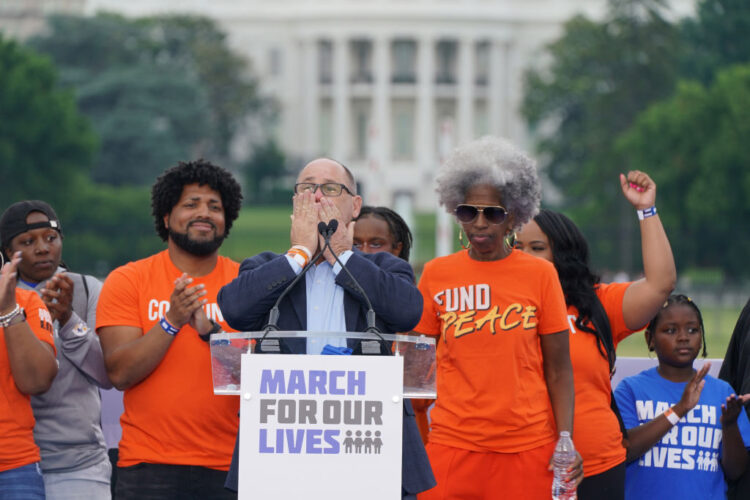
As shootings continue unabated, attendees at the D.C. rally shared intimate stories of how gun violence has affected them personally. They include a group of Michigan educators who were traumatized by a wave of copycat threats after a gunman killed four people at nearby Oxford High School in November. Another has had several close encounters with urban gun violence. On multiple occasions, the Washington, D.C., native said that shots fired have forced her to take cover.
MacKenzie Banks, 23, arrived at the National Mall more than three hours before the first speaker appeared onstage. Coincidentally, she was also born three weeks early as a result of the 1999 shooting at Columbine High School, which she said left her cousin dead and her mom so grief-stricken that she went into labor.
“It affected my upbringing and looking at the world differently because I knew how it affected my family and how it affects thousands of other families,” she said. “It just gave me a really different perspective on gun violence.”
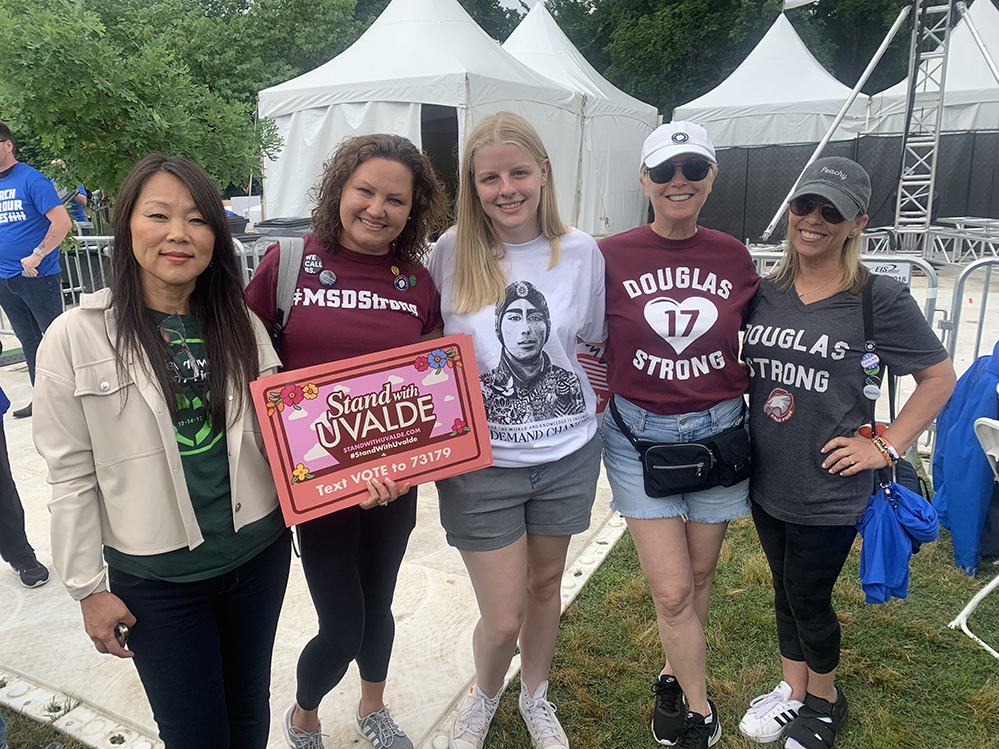
Debby Miller, an educator in Broward County, Florida, for more than three decades, said that reminders of the carnage in Parkland follow her everywhere she goes. She now fears schools, she said, and maps out escape routes whatever her destination. During the moments of panic at the D.C., rally, she said her mind went blank.
“I’m a grown-ass woman, I’m 61 years old and I was 100% terrified,” she said. “I’m not going to lie, absolute sheer shaking, surprised-I-didn’t-pee-myself terrified.”
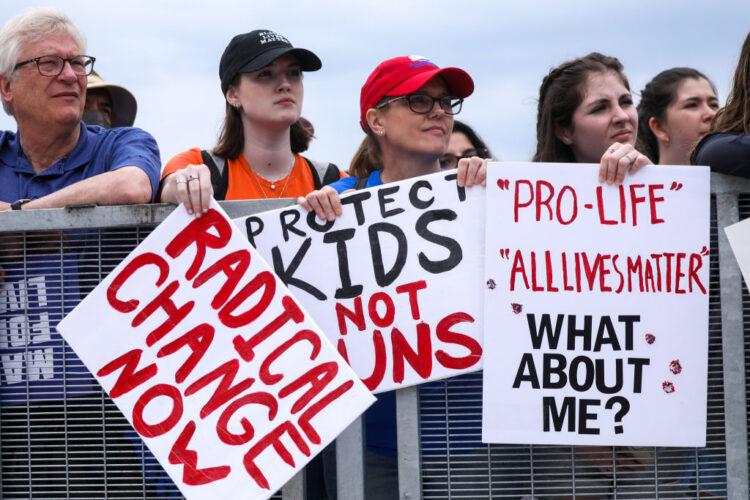
Weber said the incident forced her to think of the 2017 mass shooting at a country music concert in Las Vegas, where a gunman picked off 58 people. In a sea of people on the grassy National Mall, she realized she had no place to hide.
For the Parkland students who were forced to cower in a closet, including Wesch’s daughter, they’ll never be the same.
“Every time they hear that there is another school shooting, they go through this all over again,” Wesch said. This year alone, there have been 27 school shootings resulting in injury or death, according to a tally by Education Week. Her daughter no longer celebrates Valentine’s Day, she said, because it reminds her of the day a gunman killed her classmates. “These children are still completely traumatized by a shooter walking right into their school and slaughtering them.”
Get stories like these delivered straight to your inbox. Sign up for The 74 Newsletter

;)
